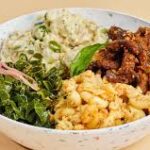African Superfoods: Unlocking Baobab, Moringa & Wellness

Africa is home to some of the world’s most powerful superfoods—nutrient-rich plants and grains that have supported health for generations. While the global wellness industry often highlights quinoa, chia seeds, and kale, Africa has long had its own treasures. Baobab, moringa, hibiscus, fonio, and teff are just a few examples of foods that provide immense health benefits while preserving culture and sustainability. Today, as Africans face modern health challenges such as diabetes, obesity, and hypertension, these superfoods offer natural solutions that are affordable, accessible, and deeply rooted in tradition.
What Makes African Superfoods Special?
A superfood is not a miracle cure but a food so rich in vitamins, minerals, and antioxidants that it goes beyond basic nutrition. African superfoods are unique because they are locally grown, resilient to the continent’s climate, and tied to centuries-old traditions of wellness. They are sustainable, nutrient-dense, and adaptable to modern lifestyles.
Baobab: Africa’s “Tree of Life”
The baobab tree is legendary in African culture and landscape. Its fruit pulp, often dried into powder, is loaded with vitamin C (six times more than oranges), antioxidants, and fiber. It boosts immunity, supports digestion, and helps regulate blood sugar. Traditionally enjoyed in drinks and porridges, baobab is now used in smoothies, energy bars, and wellness supplements worldwide.
Moringa: The Miracle Tree
Called the “miracle tree,” moringa leaves are incredibly nutrient-rich. They contain more vitamin A than carrots, more calcium than milk, and more iron than spinach. Moringa is also packed with protein, making it a powerful tool in fighting malnutrition. Across Africa, moringa is used in soups, teas, and powders, showing how an ancient food can serve modern health needs.
Hibiscus: The Heart-Boosting Flower
Hibiscus, brewed into zobo in Nigeria or bissap in Senegal, is not just refreshing but healing. Rich in antioxidants, hibiscus tea lowers blood pressure, supports liver health, and reduces inflammation. Unlike processed sugary drinks, hibiscus offers a flavorful and natural alternative that boosts cardiovascular health.
Ancient Grains: Teff and Fonio
Africa’s ancient grains are finally getting the spotlight they deserve. Teff, a staple in Ethiopia, is high in protein, iron, and calcium. Fonio, grown in West Africa, is gluten-free, rich in amino acids, and digests slowly—keeping blood sugar steady. As diabetes rates rise, these traditional grains provide healthier alternatives to refined rice and wheat.
Beyond Nutrition: Culture and Sustainability
Eating African superfoods is more than a health choice—it’s an act of cultural preservation and environmental responsibility. These crops are climate-resilient and require fewer resources than imported foods. Supporting baobab, moringa, or fonio farming strengthens rural economies while protecting biodiversity. At the same time, eating these foods reconnects Africans with ancestral wisdom that valued food as both medicine and community.
How to Add Superfoods to Daily Life
-
Blend baobab powder into smoothies or porridge.
-
Sprinkle moringa powder on rice, soups, or salads.
-
Drink hibiscus tea as a refreshing, heart-healthy beverage.
-
Replace white rice with fonio or teff for balanced energy.
-
Buy local to support farmers and sustain Africa’s food heritage.
The Global Rise of African Superfoods
Moringa supplements are now sold in wellness shops in New York, while baobab powder is marketed across Europe. African chefs are also showcasing fonio and hibiscus on international stages. For Africans, this global interest is both an opportunity and a reminder: we must value these foods ourselves before they are entirely commercialized abroad.
Final Thoughts
African superfoods like baobab, moringa, hibiscus, fonio, and teff are more than trendy ingredients—they are Africa’s gift to the world. By rediscovering these foods, Africans can improve health outcomes, preserve culture, and build sustainable food systems. Unlocking the power of African superfoods is not just about wellness; it is about reclaiming identity and shaping a healthier future.
Written by Fawzi Rufai, Medically Reviewed by Sesan Kareem



